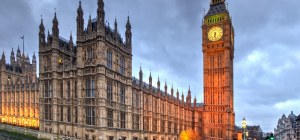51: Brexit – There are dreams that cannot be
Seven days ago we wrote that UK businesses, and the EU, were asking for certainty. A week is certainly a long time in politics.
The Government’s ‘blueprint’
Last Friday, the Prime Minister gathered the Cabinet at Chequers for a Brexit away day, to agree a ‘blueprint’ for the UK’s future relationship with the EU. Early reports were that Brexiteer ministers were irritated, first, by only having the blueprint released to them on Thursday afternoon and, second, that what was proposed was a much ‘softer Brexit’ than the Prime Minister’s ‘red lines’ had previously suggested. Crucially (as it later proved) the blueprint was published by No.10, not DExEU, showing how responsibility for the shape of the Government’s Brexit policy has shifted.
After a day of media speculation about potential resignations, Friday evening saw the publication of a Statement, to which all of the Cabinet had (purportedly) signed up, setting out the UK Government’s vision for a future UK/EU Relationship ‘built around economic partnership and a security partnership’.
At the core of the ‘economic partnership’ is the establishment by the UK and the EU of ‘a free trade area for goods’ with four main elements:
- ‘A common rulebook for all goods including agri-food’, with the UK making an upfront choice ‘to commit by treaty to ongoing harmonisation with EU rules on goods, covering only those necessary to provide for frictionless trade at the border’. Parliament would have oversight of the incorporation of these rules into the UK’s legal order (ie EU rules would no longer have direct effect) and could choose not to do so, ‘recognising that this would have consequences’;
- ‘Reciprocal commitments related to open and fair trade’, including ‘a common rulebook on state aid’, ‘cooperative arrangements between regulators on competition’, ‘high regulatory standards for the environment, climate change, social and employment, and consumer protection’ – in short ‘we would not let standards fall below their current levels’;
- ‘Consistent interpretation and application of UK-EU agreements by both parties’ – in the UK by UK courts and in the EU by EU courts, with ‘due regard’ paid to EU case law in areas where the UK continued to apply a common rulebook. Disputes would be resolved by a Joint Committee, binding arbitration and references to (but not determinations by) the CJEU as interpreter of EU rules; and
- ‘Phased introduction of a new Facilitated Customs Arrangement’ (FCA) – removing the need for customs checks. The UK would apply the UK’s tariffs and trade policy for goods intended for the UK, and the EU’s tariffs and trade policy for goods intended for the EU.
The Statement then lists the benefits of this approach (at paragraphs 5 and 6).
First, it preserves the constitutional and economic integrity of the UK, honours the letter and spirit of the Belfast Agreement, and ensures that the Withdrawal Agreement’s ‘backstop’ solution isn’t required (ie that the UK maintain ‘full alignment with those rules of the Internal Market and the Customs Union which, now or in the future, support North-South cooperation, the all-island economy and the protection of the 1998 Agreement’).
Second, in terms of the economy, it ensures frictionless trade in goods (protecting UK manufacturing), provides regulatory flexibility for the UK’s services-based economy (‘where potential trading opportunities outside of the EU are the largest’), and provides arrangements on financial services that preserve the mutual benefits of integrated markets and protect financial stability (although noting this is less than ‘passporting’).
Third, in terms of ‘sovereignty’:
- provides that the UK is leaving the Common Agricultural and Fisheries Policies;
- delivers an independent trade policy (the UK would have its own seat at the WTO, could set its own tariffs etc.);
- provides that all UK laws would be passed in Parliament (or devolved administrations);
- restores the supremacy of the UK courts;
- ends free movement (but includes a mobility framework so UK and EU citizens can travel to each other’s territories);
- ends payments to the EU budget (but retaining ‘appropriate contributions’ in specific areas such as science and innovation); and
- maintains operational capabilities on internal security and an independent UK foreign policy.
The Government’s (delayed) White Paper setting out ‘in more detail what strong partnership the United Kingdom wants to see with the European Union in the future’ is due to be published on Thursday 12 July.
The fallout
Unanimous Cabinet support for the blueprint didn’t last long.
On Sunday, the SSExEU, David Davis, resigned, saying:
‘In my view the inevitable consequence of the proposed policies will be to make the supposed control by Parliament illusory rather than real. As I said at Cabinet, the “common rule book’ policy hands control of large swathes of our economy to the EU and is certainly not returning control of our laws in any real sense. I am also unpersuaded that our negotiating approach will not just lead to further demands for concessions.’
Junior Brexit minister Steve Baker also resigned.
Then, on Monday, the Foreign Secretary, Boris Johnson, resigned, saying:
‘Brexit should be about opportunity and hope … a chance to do things differently, to be more nimble and dynamic, and to maximise the particular advantages of the UK as an open, outward-looking global economy … That dream is dying, suffocated by needless self-doubt … [W]e appear to be heading for a semi-Brexit, with large parts of the economy still locked in the EU system, but with no UK control over that system … We are now in the ludicrous position of asserting that we must accept huge amounts of … EU law, without changing an iota, because it is essential for our economic health – and when we no longer have any ability to influence these laws as they are made … In that respect we are truly headed for the status of colony – and many will struggle to see the economic or political advantages of that particular arrangement … It is also clear that by surrendering control over our rulebook for goods and agrifoods (and much else besides) we will make it much more difficult to do free trade deals. And then there is the further impediment of having to argue for an impractical and undeliverable customs arrangement unlike any other in existence …’
Two vice-chairs of the Tory party also quit.
The Prime Minister appointed Dominic Raab as the new SSExEU and Jeremy Hunt as the new Foreign Secretary. Both can be considered Leavers (although Hunt originally supported Remain). Raab appeared regularly at the Commons despatch box during the passage of the EU (Withdrawal) Act (most notably, failing to prevent the Grieve rebellion). Both have taken their new jobs on the basis that they support the blueprint. As the PM said in her reply to Boris:
‘As we developed our policy on Brexit, I have allowed Cabinet colleagues considerable latitude to express their individual views. But the agreement we reached on Friday marks the point where that is no longer the case, and if you are not able to provide the support we need to secure this deal in the interests of the United Kingdom, it is right that you should step down.’
The PM’s position
Where does all this leave the PM?
Arguably, stronger, at least in the short term. She now has a Cabinet united behind a blueprint which she is comfortable with and which provides a basis for stepping up the Brexit negotiations. And while there is severe disquiet on the Tory backbenches, there has been no leadership challenge as yet. Conservative Party rules require 15% of all Tory MPs – currently 48 – to write to the chairman of the backbench 1922 Committee to trigger a vote of confidence in the leader. Only one Brexiteer (Andrew Bridgen MP) has confirmed he has done so.
Those considering a leadership challenge will be counting carefully. They may have enough numbers to launch a challenge, but do they have the numbers to oust the PM? More fundamentally, if they were successful, what vision of a ‘harder Brexit’ would that new leader propose? Could they carry a Parliamentary majority for it (as required under s13 of the EU (Withdrawal) Act)? The perceived danger is that a leadership challenge would ultimately precipitate a general election, with the potential for Prime Minister Corbyn, which no Tory wants.
The danger is that this is all so much sideshow, and the EU will not be persuaded to grant free movement of goods without the UK also signing up to the remaining ‘four freedoms’ – of services, capital and labour – because if the UK could ‘cherry pick’ other states, inside or outside the EU, could seek the same. The UK hopes that EU member states and companies, valuing existing economic ties, will encourage the EU to soften its stance as, it seems, does the Taoiseach.











